-
Signs That Now Is the Time for a New Water Heater
Your water heater is responsible for providing you with heated water for all of your daily activities. When you start to notice that your hot water heater is no longer providing you with clean, clear hot water, it may be time to start talking to your plumber about a water heater replacement. A plumber serving Jacksonville can help you choose the perfect new hot water heater for all of your plumbing needs. To help you decide when it is time to call your plumber, here is a look at some top signs that your existing unit is reaching the end of its life.
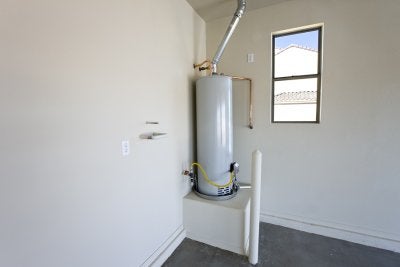
Aging Unit
One of the main signs that your water heater is ready for replacement is when you discover that your unit is reaching the end of its usable lifespan. Typically, hot water heaters will remain in operable condition for up to 10 years after they are installed. If you are wondering whether your unit is ready to be replaced, you can check the date code that is printed on the tank.
Discolored Water
Another sign that your hot water heater is ready for replacement is when you start to notice that the water coming from your pipes is dirty or discolored. If a water heater develops corrosion or sediment in its tank, these contaminants may start affecting your home’s hot water supply. By replacing your water heater with a brand new unit, you can restore the clarity and safety of your hot water.
Unusual Sounds
In order to decide when it is time to replace your hot water heater, you may also want to be on the alert for any unusual sounds that may be coming from your tank. As sediment builds up on the bottom of your tank, it may begin to form a hardened layer. Since your water heater will have to work harder to generate heated water, it may begin to make unusual clanking or banging noises. If you notice any of these sounds, you should be sure to schedule a water heater replacement right away.
-
Myths About Tankless Water Heaters
If you need new water heater installation near Jacksonville, you may be wondering which type to choose. To ensure that you select the best option for your home and needs, consider these common tankless water heater myths before you make a decision.
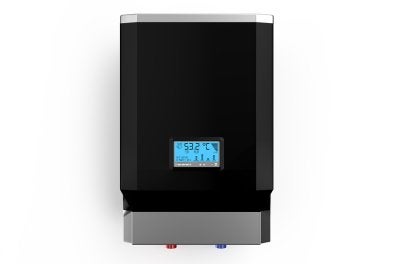
Myth #1: There is little difference between tankless water heaters.
Over the years, these water heaters have benefited from technological advances that make some of them more reliable, cost-effective, or easy to install. Because some brands have adopted newer equipment while others haven’t, not all tankless water heaters are of the same quality. You’ll find that some brands boast greater reliability and firepower, while others will lack in the areas of product support and upkeep costs.
Myth #2: You can switch to a tankless water heater without an inspection or permit.
While this is true for some areas, it’s not a blanket truth. Your jurisdiction may require both a permit and an inspection before you install your new water heater. To find out more, talk to a local and reputable HVAC company to learn about the requirements for changing to a tankless water heater.
Myth #3: Making the switch to a tankless water heater is simple.
The fact that changing your water heater type is not so easy to accomplish may have something to do with the truth behind myth #2. Unfortunately, most homes were installed with conventional water heaters without any plans to accommodate a tankless system. Your home’s gas line, meter, and piping must be of sufficient size to handle the greater requirements of a tankless water heater. A successful installation is essential for ensuring optimal performance from a tankless water heater.
Myth # 4: It’s expensive to operate a tankless water heater.
Tankless water heaters can potentially save you money on your energy costs. Conventional water heaters must keep a sizeable container of water heated throughout the day and night, even if it isn’t in use. Tankless water heaters warm water only on demand, potentially saving you money on your monthly energy bill.
-
The Benefits of Investing in Environmentally Friendly Plumbing
Many of the components of your property’s plumbing system are available in eco-friendly alternatives. If you are looking for a plumber serving Jacksonville to replace or repair parts of your plumbing, consider the advantages of investing in environmentally friendly options . Green plumbing solutions can benefit the planet, your wallet, and your health.
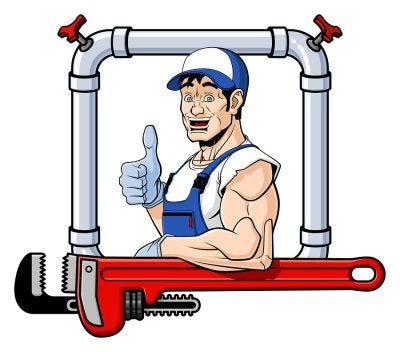
Less Water
Today, there are plenty of options available to help you reduce your water usage. The newest low flow toilets, for example, can use as little as 1.6 gallons of water per flush, compared to the 3 to 7 gallon range of conventional toilets. Economy shower heads offer another method of saving water by significantly reducing the water allowed to pass through them while in use. Unlike some of the economy shower heads of the past, newer models offer consistent, high-pressure water delivery that can save you on your water costs.
Less Energy
Water heating can account for a significant portion of your overall energy usage, and heat loss is one of the greatest contributors to a higher energy bill. Environmentally friendly plumbing can involve the installation of insulated pipes, as well as the migration of your plumbing from your home’s outer walls into the conditioned interior areas to minimize unnecessary heat loss. High-efficiency water heaters are not only able to reduce your monthly bills, but they can also benefit the planet by conserving energy. Tankless water heaters are another energy-saving option that benefits you by heating water only as it’s needed instead of 24 hours per day. Ask your plumber about what other options are available for your home to reduce its energy usage.
Cleaner Water
Many environmentally friendly plumbing options have the surprising benefit of providing your family with more sanitary water. Because green plumbing systems can be better adapted to filter water, the water carried into your home can be healthier for your than that delivered by your existing plumbing. Green plumbing options that can improve the purity of your water can include reverse osmosis systems, activated carbon filters, whole house water filtration systems, and chlorine filters for shower heads.
-
Surprising Facts About Leaky Faucets
Leaking toilets, pipes, and faucets are common sources of wasted water. If you think that you may need water line repair, call a plumber serving Jacksonville as soon as possible so you can prevent more damage and reduce your water usage. Watch this video to learn surprising facts about leaky faucets that your plumber can explain.
A problem as small as a leaky faucet may not cause you to think twice, but if it drips just once per second, it could end up wasting you 113 gallons of water per month. Luckily, leaky faucets often require only a simple and inexpensive repair. Call your local hardware store or plumber to learn how you can fix your faucet problem or sewer issue.
-
Does Your Water Heater Need to Be Replaced?
Without your home’s hot water heater, there are many daily tasks that you won’t be able to complete. From taking a shower to washing your clothes and dishes, you need a functional water heater to survive, so you will need to call a plumber right away when your current water heater gives out. Eagerton Plumbing Co., Inc. can help you install a new water heater in Jacksonville whenever you need one.
There are certain signs that will indicate that your water heater is going to fail at any moment. For example, if you have discolored water coming out of the faucets in your home, it’s a sign that the sediment inside of your water heater’s tank has become dislodged as a result of a problem with it. Likewise, a leaky tank will show that it’s time to call the plumber for a new water heater. By keeping an eye out for these signs, you can replace your water heater before it completely fails on you. When you work with Eagerton Plumbing Co., Inc., we will act quickly to get a new water heater installed so that you aren’t left without hot water for an extended period of time.
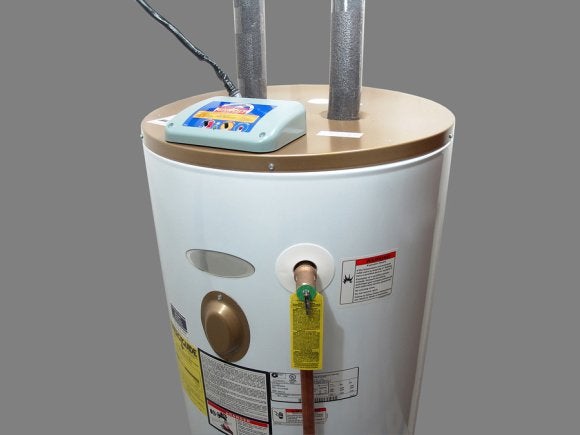
-
Knowing When It’s Time to Replace Your Water Heater
Your water heater is one of the largest energy consumers in your home. As water heaters age, they become less energy efficient. They also become more prone to failure and have difficulty supplying a household’s hot water needs. The longer you wait to replace an old, inefficient water heater, the more you’ll spend on energy bills and water heater repairs. The key is to know when the time is right to replace your water heater, and we don’t mean waiting until it fails completely. If you recognize any of the following signs, contact a water heater replacement company in Jacksonville to explore your options for a new water heater.
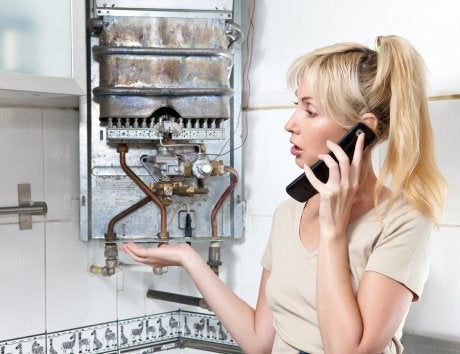 Poor Water Quality
Poor Water Quality
You can tell a lot about the condition of your water heater by the water that comes out of the hot faucet. If the water appears rusty or has a lot of sediment, it could signal upcoming water heater failure. Another sign of potential failure is hot water with a metallic taste or unusual odor. If you are concerned about the quality of your hot water, schedule a water heater inspection today.Insufficient Hot Water
It’s normal for a tank-style water heater to run out of hot water, but it should do so on a consistent basis. In other words, if your household is running out of hot water faster than normal, this could be an indication of a serious water heater issue. If you have a busy household, consider a tankless water heater, which provides unlimited on-demand hot water.Leaking Water
Contact a Jacksonville water heater repair company immediately if you see leaking water around the appliance where none has leaked before. Leaking indicates an internal failure in the water heater. Disconnect the electricity or turn off the gas to the unit and let the water cool down before attempting to remove and replace the water heater.
RECENT POSTS
categories
- Uncategorized
- Water Heater Installation
- Tankless Water Heater
- Plumbing Services
- Bathroom Remodeling
- Hot Water Heater
- Plumber in Jacksonville
- Water Heater Repair
- Eagerton Plumbing
- Eco-Friendly Plumbing Repair
- Water Damage
- Plumbing Leak
- Sewer Line Repair
- Infographic
- Clogged Drains
- Kitchen and Bathroom Remodel
- Bathroom Plumbing
- Residential Plumbing Services
- Garbage Disposal
- Toilet Repair
- Water Heater Replacement
- Water Conservation
- Emergency Plumbing
- Commercial Plumbing Services
- Kitchen Design Inspiration
- Kitchen Remodel
- low-flow toilets
- Leaky Faucet
- Conserve Water
- Drain Pipes
- Kitchen Sinks
- Vessel Sink
- Plumbing Problems
- Water Leak
- Commercial Remodeling Contractors
- Drain Cleaning Services
